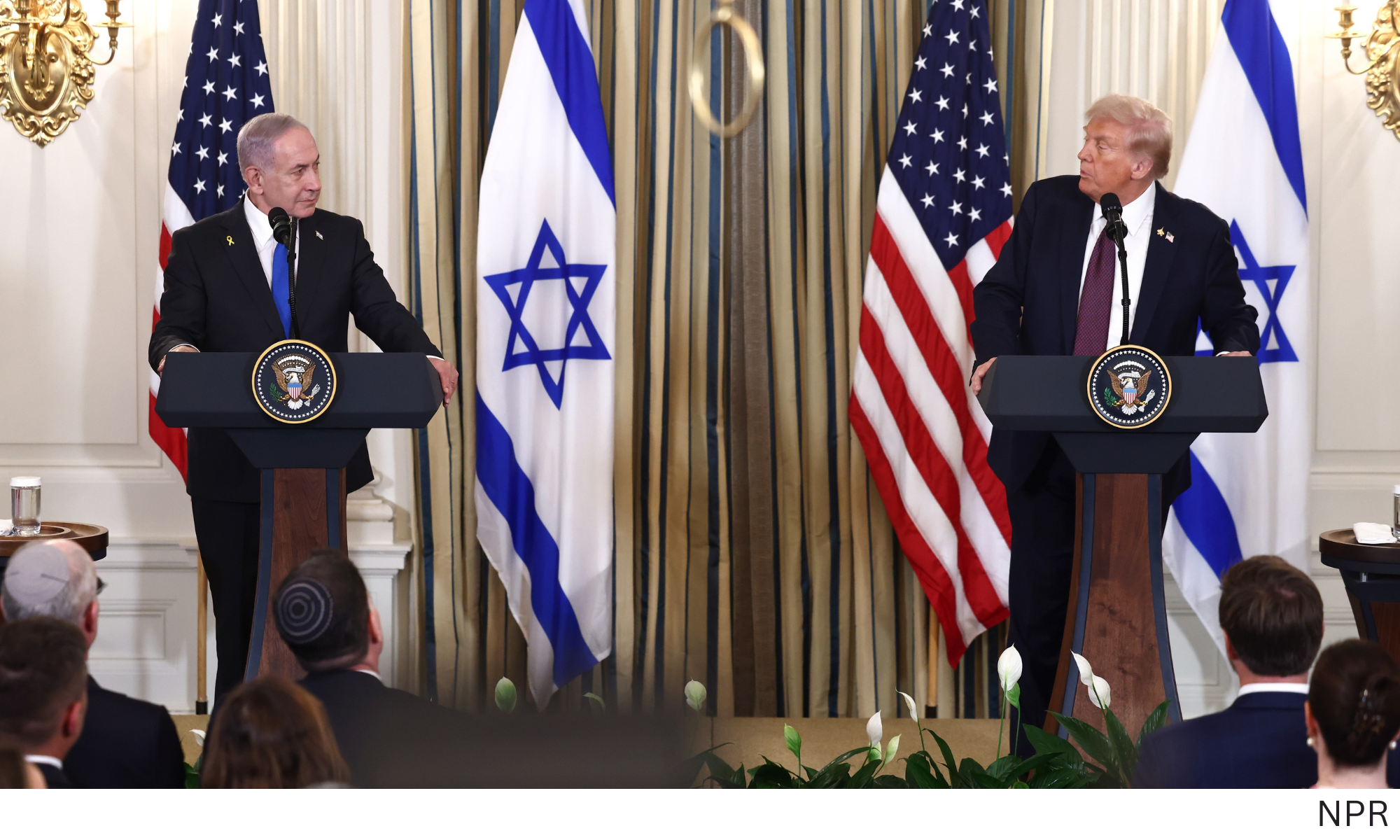Over the past week, former President Donald Trump intensified efforts to bring an “end-of-war plan” to fruition, seeking a resolution to the ongoing conflict between Israel and Hamas. Reports indicate that Trump pressed his advisers to develop a framework acceptable to all parties involved. Through intensive diplomacy, his Middle East envoy Steve Witkoff and former envoy Jared Kushner worked to bring Israeli Prime Minister Benjamin Netanyahu to the negotiation table, despite his initial reluctance. The outcome of these efforts now hangs in the balance, as negotiators await the Israeli leader’s response.
Trump’s Push for a Comprehensive Peace Plan
Trump’s insistence on an end-of-war plan reflects his focus on achieving a diplomatic resolution that addresses both humanitarian and security concerns. The plan aimed to reconcile the interests of Israel, Hamas, and regional partners, while prioritizing the safe release of hostages and the cessation of hostilities.
By personally pushing his team, Trump demonstrated a hands-on approach, signaling the urgency of resolving the conflict before further civilian casualties and regional destabilization could occur. His involvement underscores the importance he placed on creating a framework that could be implemented quickly and effectively.
Envoys’ Role in Diplomacy
Steve Witkoff, serving as Trump’s Middle East envoy, coordinated negotiations and dialogue between parties. Alongside him, Jared Kushner, who previously held the envoy position and returned from private life to assist in the process, played a key role in bridging communication gaps.
Together, they engaged in marathon discussions with Israeli leadership, using intensive diplomacy to persuade Netanyahu to participate in talks. Their efforts highlight the critical role of experienced envoys in managing complex international negotiations, ensuring that all perspectives are heard and that solutions are actionable.
Netanyahu’s Reluctance
Prime Minister Netanyahu’s initial hesitation demonstrates the challenges of achieving consensus in high-stakes diplomacy. Israeli leadership has historically balanced security concerns, domestic political considerations, and regional pressures when engaging with Hamas and international mediators.
Despite his reluctance, Netanyahu agreed to participate in the meetings in New York City, indicating a willingness to explore potential resolutions. This engagement marks a significant step, as Israeli cooperation is essential for implementing any end-of-war plan, particularly concerning ceasefires, hostages, and territorial governance.
Diplomatic Pressure and Strategic Negotiations
The weekend meetings in New York were described as marathon sessions, reflecting the intensity of negotiations required to align all parties. Trump’s team applied pressure on Netanyahu, leveraging diplomatic channels and emphasizing the importance of timely action to prevent further escalation.
This strategy demonstrates how negotiation in international conflict often involves a combination of persuasion, pressure, and patient dialogue. Maintaining momentum and ensuring commitment from reluctant leaders is crucial to achieving tangible outcomes in peace initiatives.
Humanitarian and Regional Stakes
The urgency behind Trump’s push is rooted in the humanitarian crisis in Gaza and the political complexity of the region. Tens of thousands of civilians have suffered due to ongoing hostilities, and the release of hostages remains a critical objective for international mediators.
The involvement of the United States, through Trump and his envoys, along with regional partners such as Qatar, Saudi Arabia, Jordan, Egypt, and Turkey, underscores the necessity of multilateral engagement. Coordinated diplomacy aims to stabilize the region, mitigate civilian suffering, and create conditions for a sustainable ceasefire.
Awaiting Outcomes
As of now, negotiators are waiting to see whether the pressure exerted on Netanyahu will yield results. The Israeli leader’s response is pivotal, as it will determine whether the end-of-war plan can advance to implementation. Success will require not only Israeli participation but also cooperation from Hamas and oversight from regional and international actors.
The situation remains delicate, with every decision carrying significant implications for both security and humanitarian outcomes. Continued monitoring and engagement will be critical to ensure that negotiations translate into concrete, actionable measures.
Conclusion
Trump’s recent diplomatic push demonstrates a high-stakes effort to secure an end-of-war plan in the Israel-Hamas conflict. By leveraging experienced envoys and applying strategic pressure on Israeli leadership, the former president sought to create a framework for ceasefire, hostage release, and regional stability. While outcomes remain uncertain, the intensive negotiations highlight the importance of diplomacy, multilateral cooperation, and decisive leadership in addressing one of the most pressing conflicts in the Middle East today.
%20(4).png)




